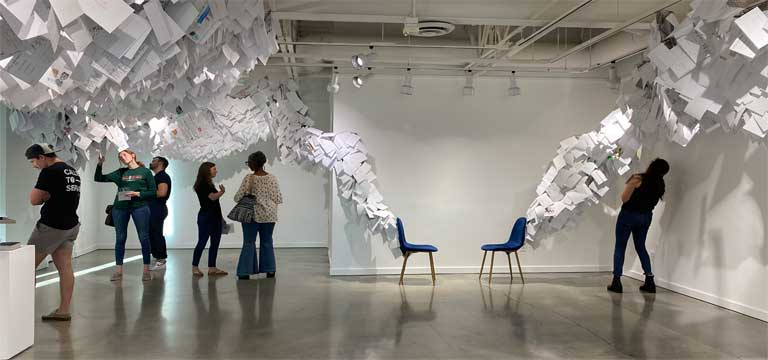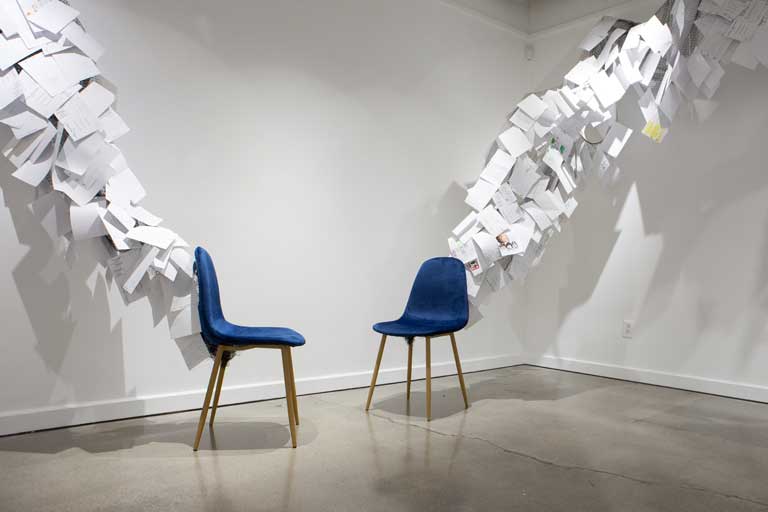
The Connections Project invites individuals to connect with those who don’t look, think, or act like us. Various stances on social issues, race, gender, and the economy spark heated debates in the public sector, on social media, and around family dinner tables. This project challenges individuals to take a fresh look at how they see their neighbors.
More than 2,000 students and community members answered a prompt printed on a postcard as a first step to begin to recognize our prejudices. For example, one prompt invited a response on how diverse people could find a common interest. Individuals wrote sentences or drew pictures on the back of the postcards, which were incorporated into the display.

For another part of the Connections project, I interviewed a dozen people to talk about our universal prejudices towards others. One man recognized and admitted his unfair bias against Muslim people and explained how he started to change his wrong attitudes. He said, “While riding a bus one day, I ended up sitting next to a Muslim woman, so I decided to start a friendly conversation with her. As we talked, the woman responded with a warm smile.” In that healing moment, the man decided to confront his bias and intentionally show kindness to the Muslim woman.
The Connections project also personally challenged me to take a fresh look at my own attitudes towards others. I discovered that I find it very easy to form negative opinions about others as I wait in the checkout line at the grocery store, judging people for their unhealthy food choices or their lack of parenting skills. Sadly, these biases reveal my pride and lack of grace towards others.
As I listened to others during the interviews and considered my own blind spots, I decided to ask participants to consider one further challenge: Make a new friend with someone who is different. Over the last year, I have been forming new friendships—across cultural dividing lines—with those who don’t look, think, or act like me. Through these relationships, I have learned that those who seem different are actually a lot like me.

If we take the first step by talking to the person next to us, like the man on the bus, we can overcome our prejudices and grow in our understanding for others. By just listening to our neighbor’s stories, we can begin to recognize what we have in common. Every society needs courageous individuals who endeavor to let go of what divides us and adopt an attitude of generosity for others.






